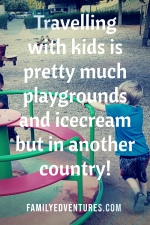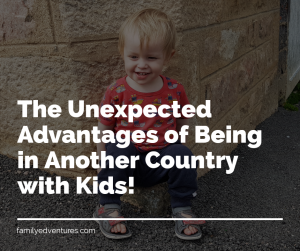Airbnb has been working well for us for a few years now. We’ve made thousands of pounds simply by renting our house out for around 10 weeks a year.
When we started looking into putting our house on Airbnb we wanted to make sure that we did it properly.
We couldn’t really find the information we needed online so we’ve put together this guide to help anyone thinking of airbnb’ing!
What is Airbnb?
Airbnb is the worlds biggest accommodation sharing site.
The name comes from the air beds that the founders used when they first rented out their place in San Francisco…the name airbnb was born (air bed and breakfast).
How Can I Make Money With Airbnb?
There are a few ways to make money by joining the 800,000 people who’ve already listed their properties.
Once you’ve registered with airbnb you can choose to list either your entire home or a room in your house (while you use the rest of the house).
You don’t pay anything to airbnb upfront. They take 3% commission of every booking from the host. They also charge guests an additional booking fee of between 6% and 12%.
You are free to set your prices with the Calender and add various fees such as cleaning and tax.
Payment is taken by airbnb at the point of booking. It is deposited into the hosts bank 24 hours after your guests check in.
Is It Safe To Airbnb My House?
Ok, I’ve read some horror stories…drug parties, houses trashed…
The thought of that happening in your house is scary.
The way I like to look at it is that with 800,000 properties listed there are bound to be some disasters!
There are some precautions that you can take to make sure your protected:
Check Reviews
We don’t like to refuse first time airbnb’ers who don’t yet have reviews. But, it’s definitely worth checking what other hosts have said about their guests if you can.
Make sure your covered.
It provides primary coverage for Airbnb hosts and landlords (when landlords are named in a lawsuit), worldwide. The program protects against liability claims—up to $1 million USD—that happen in a listing, or on an Airbnb property.
Talk To Your Guests
How do I get started with Airbnb?
Register with Airbnb.
You can do it now. It’s quick and easy and you can think about the rest later!
Click through here to receive £25 credit towards renting a place....we get some credit too if you end up using airbnb which is awesome and we’d be extremely grateful!🤗
Add your property details.
Airbnb will guide you through the entire process. Take a look at similar properties and describe your property in a way that sells its best features. Our places selling points are its location (by the coast) and our child friendly garden (play equipment).
Add photographs.
Include lots of lovely photographs of your property and local attractions.
If you want positive reviews then take honest pictures. Personally I hate it when properties stretch shots to make rooms look bigger than they are.
You may find it easier to add a few initial photos to your listing and then update them when you’ve actually got the property ready for your first guests. That way you’ll be getting bookings sooner despite not being quite ready!
Set Prices and Availability.
Use the Dashboard Calendar to select the dates that your property is available and how much you charge.
We suggest not taking too much notice of the ‘recommended’ price per night for your property. It takes an average of properties in your location but for us there were a lot of ‘glamping’ spaces and low spec houses that brought the suggested price down.
Choose your price and see if you receive bookings. If not then you can adjust later.
During our first year we charged a lot less. We had no reviews so we needed the price to tempt bookings! It worked and we were fully booked.
We increased the price the following year and were still fully booked.
Adjust Specifics
Take a look at the settings and make sure they work for you. You can choose to only allow a minimum number of nights, instant bookings (guests can book without emailing first), select specific check-out days and a to leave a gap between bookings.
How to get your house ready for Airbnb guests?
Would you book a place with 2/5 stars?
Me neither!
Reviews are so important. The way we communicate with guests and present our house is key to getting glowing reviews.
Email to guests.
Emailing guests when a booking comes in is a good opportunity to introduce yourself.We also check if there is anything specific they need (stairgate, room divider, sofa bed made up).
Include your check-in information and some directions to your property.
We also include contact information as we’re usually in another country when guests stay.
Welcome Packs.
First impressions are really important.
We like to leave a few local products for guests along with our Welcome Booklet.
The Welcome Booklet includes simple instructions about how to use the oven, dishwasher etc aswell as a few local outing recommendations. (I’m happy to share ours if you send me a message).
House Presentation.
Some hosts are letting holiday houses and others their home. It’s up to you as a host how you present you place to guests.
I’ve heard stories from friends who’ve stayed in properties where medication had been left in the bedside cabinet and washing up in the sink!
Make sure your house is clean and tidy and be clear in the description if you’ll be leaving personal possessions.
If you’d rather clear your house of most personal possessions, like us, then you could try these ideas:
- Get rid of as much ‘stuff’ as possible! Airbnb is an amazing way of decluttering. It gets easier every year as we have less junk!
- Find somewhere to store the things you want to keep ‘hidden’:
- the attic
- a locked spare-room that guests won’t access
- a large built-in wardrobe
- garage
- Start packing what you can as early as possible.
- Leave board games, toys, dvds, books for guests to enjoy (if you’re happy to). It’s less for you to store.
Buy extra.
- It makes quick change-overs so much easier if you have double the amount of bedding and towels that you need for a full house.
- Mattress protectors…don’t ask…just buy them!
- We also buy toilet roll in bulk as we like to leave a few for each family.
Cleaning!
You’ll need to work out who will do your change-overs and how long it’ll take to get the place tidy between guests.
If you’re staying close-by then you can do this yourself.
If you’re going away while you rent out your house you’ll need to find someone to manage change-overs.
When we’re travelling we pay a local cleaner to deal with change-overs and laundry.
Make sure the hours are logged and invoiced as you’ll be able to deduct it as an expenditure when you declare your earnings for tax purposes.
Tips for a Successful Airbnb
We’ve learnt a few things the hard way over the last few years. Hopefully by sharing our tips we’ll save few people some hassle!
Rubbish Bins
Leave a simple info card stuck to your bin to let guests know which items are recycled in your area. You’ll still have a few that put last nights dinner in with recyclables but most will get it right.
Have a Local Contact.
If you’re going to be out of the country when you’re guests arrive then it may be helpful to have a local contact arranged. Just for emergencies.
We had the immersion water heater ‘stop working’ for the first time ever! It helps to have someone in your home country that can call professionals or buy a new microwave, if guests report issues to you.
Be Clear.
5% of our guests have fiddled with our solar water heater controls (despite being asked not to). We now stick a label over the top asking them to contact us if there’s a problem!
Deposits
Some hosts insist on taking a security deposit…others think it will be guests off.
We personally haven’t taken one but have considered it.
In much of Europe and further afield deposits are standard and pretty high.
How to declare Airbnb earnings in the UK
If you earn less than £1000 through holiday let per financial year then you won’t need to tell HMRC (unless you’re self-employed).
If you make between £1000 and £2500 you need to speak to HMRC about paying tax via PAYE (Pay as You Earn).
Earning over £2500 means that you must register for Self Assessment.
You’ll need to contact HMRC to be sent a code in the post. With this you can then complete a form online or by post. They will tell you which sections to complete.
When you complete the self assessment you can choose whether to submit your expenses (cleaning etc) or accept your £1000 allowance. you can’t have both.
If you have joint ownership of your house then you both declare half, if the house is in one partners name they declare all airbnb earnings (that’s what HMRC advised me anyway). This worked out well for us as I wasn’t earning at the time.
Reflecting on your rental period
When your final guests have left, reflect on the process.
Did you enjoy your Airbnb experience?
Did you love sharing your home with strangers or did you feel like it was too much?
How did your children take it?
What did guests say about your place?
If you’ve had any negative comments then think about how to put things in place to improve guest experience.
There will always be the occasional family who take issue with peculiar things! Learn which comments to take seriously and which to take with a pinch of salt!
We had a couple who were particularly offended that we didn’t leave a teapot. Another who marked our location as one star purely because their satnav couldn’t find us! (We sent clear instructions but they didn’t bring a copy!)
Don’t worry too much about the odd strange review as overall reviews are more important. We still have 4.9 stars despite the above.
I hope this How to Airbnb Your House Guide helps to make you some extra cash from your house!
Don’t forget to sign up with Airbnb today for your free £25 voucher. to start earning!

















Leave a Reply